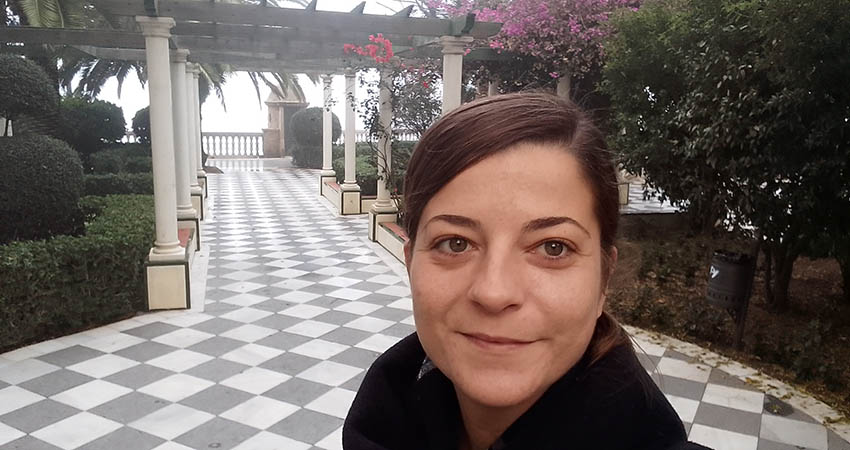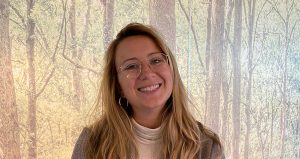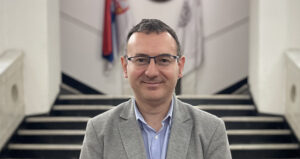Chrysa: “Using the power of social media to solve water issues”

-
Editorial Team
Share article:
Chrysa Efstratiou from Greece is a member of the fifth group of the European Junior Water Programme (EJWP). She is sharing her experiences with Water News Europe. Chrysa believes young professionals can play a pivotal role in raising public awareness about water depletion and pollution-related issues. Using the power of social media, they can contribute to positive change.
What is your current work position?
“I work as a research scientist at the Institute of Oceanography of the Hellenic Centre for Marine Research. HCMR is a governmental research organization in Greece that promotes the responsible use of marine resources. Much of my focus lies in environmental planning and impact assessment of emerging sectors, including blue energies and biotechnologies – to advance their integration. This includes engaging with policymakers, industry leaders, and local communities to ensure that the findings are not only scientifically robust but also practically applicable.”
Where are you from originally?
“I was born and raised in Thessaloniki, Greece, and I have family connections to Kavala. Both cities present a distinctive water landscape, ranging from pristine mountain springs and rivers to abundant marine resources. Growing up in these regions provided a deep understanding of the bond between humans and water. I currently live in Athens.”
What were your highlights from the EJWP week in Athens?
“Encouraging diversity and communication in a project team fosters different perspectives, propelling creativity and thinking outside the box. It is really important to recognize the different cultures of our team, openly discuss and assign responsibilities, depending on each individual’s personality.”
What are the opportunities and challenges unique to young professionals in the water sector?
“Currently, there is a strong demand for the development of technologies and methods for collecting and analysing data, especially in biotechnology. Furthermore, young professionals can play a pivotal role in raising public awareness about water depletion and pollution-related issues. Using the power of social media, they can contribute to shaping public perceptions, fostering a sense of responsibility, and driving positive change to preserve aquatic resources.”
What is a topic that you see as increasingly important?
“The integration of circularity principles with biotechnology in water management holds immense potential for addressing environmental challenges, promoting sustainability, and driving positive change. However, in many regions, this requires the establishment of new economic models. In this case, scientific knowledge about circular economy and bioeconomy practices must be transferred to managing authorities and legislators, to all relevant business sectors, and the general public. Good communication with stakeholders is key toward sustainability.”
What and where did you study?
“I studied at the Agricultural School of the Aristotle University of Thessaloniki, specialising in hydraulics, soil science and agricultural engineering, and I earned my master’s degree in renewable energy technologies from the University of West Attica.”
Where and in which position would you like to be working in five years?
“I hope to contribute to water-related projects, but I also want to expand my activities into different areas around the world.”
















